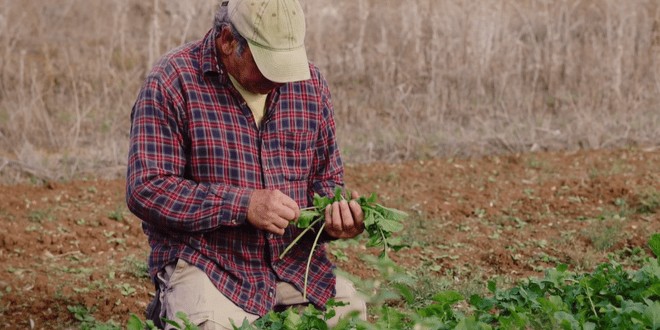Farming in Israel is the physical manifestation of Israel’s relationship with God and Ben Rosenberg is taking this to new heights. Farming is never easy, organic farming even more so, but organic farming that adheres to the Biblical mandates is on an entirely new level. He does not resort to pesticides but Rosenberg, an observant Jew, is also scrupulous in observing the agricultural mandates which includes maaser (tithing) his produce. His product is so special that he personally delivers to his loyal customers.
But this year, Rosenberg faces an even greater challenge. Rosh Hashana ushered in the Shemitta (Sabbatical). Jews are forbidden from working the land during the Shemitta. This prohibition includes plowing, planting, pruning, and harvesting. This is a hardship on the farmers so in the Torah, God assures Israel that the year preceding the shemittah will produce a bounteous harvest that will provide all their needs for the year that they do not work the land.
And should you ask, “What are we to eat in the seventh year, if we may neither sow nor gather in our crops?”I will ordain My blessing for you in the sixth year, so that it shall yield a crop sufficient for three years.When you sow in the eighth year, you will still be eating old grain of that crop; you will be eating the old until the ninth year, until its crops come in. Leviticus 25:20-22
But Jews in Israel still need to eat during the Shemitah. Most farmers rely on loopholes such as symbolically selling their fields to a non-Jew. This technique is referred to as “heter mechira”. Some authorities question its validity while others object to it on the grounds that it transferred ownership of the Holy Land to non-Jews, albeit in only a symbolic manner.
There are practical methods to grow produce during the Shemitah that require extra expense and great effort. But Rosenberg is willing to put out that effort in order to observe the Shemitta. He will be growing his vegetables in raised containers inside fabric-covered hothouses. In this manner, the plants are considered technically disconnected from the land of Israel. He built a half-acre of greenhouses under rabbinical supervision to ensure the plants have no contact with the soil in his three-acre field in Moshav Tirosh in the center of Israel. The setup is one hundred percent halachically (Torah law) permissible but it is expensive. And he will only be able to grow about half the usual 40 seasonal varieties he raises in the field during a normal year.
Rosenberg’s efforts have an additional benefit. Produce grown in Israel in the seventh year takes on an elevated level of holiness. This produce should not be traded commercially nor sent outside Israel. It may not be wasted or used in an unusual manner. However, it is permitted to eat and should be treated in a respectful way i.e. leftovers should be wrapped prior to throwing it away.
But Shemittah is difficult and costly. Rosenberg must still pay his bills, his employees’ salaries, and his bank loans. Israel365 is reaching out to its readers to help Rosenberg fulfill the Biblical commandment You can help by making a donation today.. Help Ben cover his costs while the Land rests…just as God commanded.
The shortcode is missing a valid Donation Form ID attribute.




